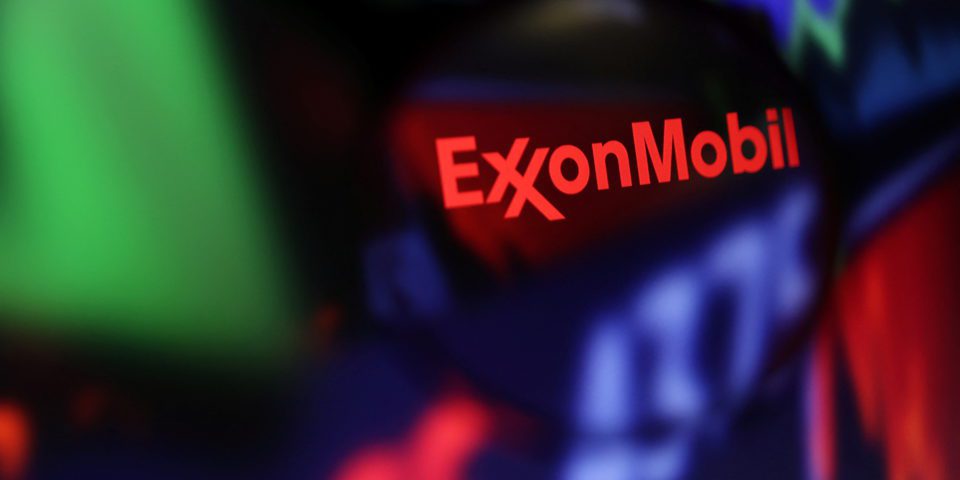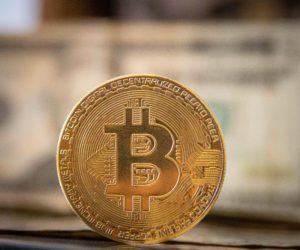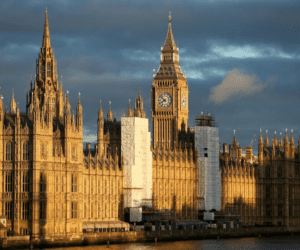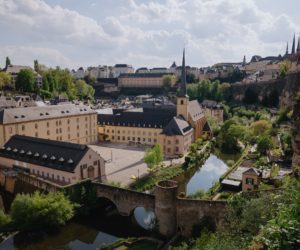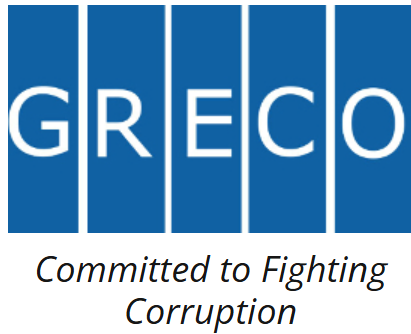By Sabrina Valle and Gram Slattery
US government officials repeatedly warned Exxon Mobil to avoid doing business with two mining magnates in Guyana, who face a U.S. investigation on suspicions of money laundering, drug trafficking and gold smuggling.
The Texas-based oil giant ignored the advice, which was delivered during meetings in late 2021 and early 2022, and cut a deal to build a $300 million onshore logistics base with a consortium that included the two Guyanese businessmen, Nazar Mohamed and his son, Azruddin. Exxon announced the contract award in April 2022.
The Mohameds have close ties with Guyana’s president and some cabinet members, according to one of the U.S. intelligence reports and three sources with knowledge of their relationships. The government controls access to vast and newly discovered oil reserves off the South American nation’s coast. The Mohameds, owners of Mohamed’s Enterprise, had mostly focused on gold mining and foreign currency exchange before expanding into the oil business in recent years and securing the lucrative deal with Exxon.
Now, U.S. officials are considering imposing sanctions on the Mohameds, according to four of the sources and two additional people familiar with the matter. That could require Exxon to sever its business relationship with any sanctioned individuals or companies.
The construction of the shore base is part of Exxon’s efforts to expand oil production off Guyana’s coast. An Exxon-led partnership with two other oil firms currently produces about 380,000 barrels per day. The companies plan to expand output to 1.2 million bpd by 2027, a massive haul that would make Guyana’s production higher than what many OPEC nations, including neighboring Venezuela, produce today.
Exxon did not answer detailed questions from Reuters for this story but said in a statement: “We comply with all applicable laws where we operate and conduct our business.”
The Mohameds deny any wrongdoing. They are being investigated by the Drug Enforcement Administration (DEA), the Federal Bureau of Investigation (FBI), the Department of Homeland Security and other U.S. agencies, on suspicions of smuggling Colombian cocaine and illegally mined Venezuelan gold to the United States, Europe and the Middle East, according to the five sources with knowledge of the probe. The Mohameds are also suspected of laundering money for drug traffickers and criminals, including sanctioned Russian nationals operating in the region, according to one of the intelligence reports.
The FBI, DEA and Homeland Security all declined to comment.
The U.S. officials advised Exxon against doing any business with the Mohameds, warning that Washington had identified concerns and “red flags” with the pair and saying they could not get visas to enter the United States, according to two of the sources familiar with the matter. The officials did not, however, tell the Exxon executives the full details of the criminal probes into the Mohameds because of legal constraints on disclosing information about ongoing investigations, the two sources said.
Reuters told Exxon in a request for comment in July 2022 that Nazar Mohamed faced a criminal investigation by U.S. authorities.
The news organization interviewed the elder Mohamed twice last spring and summer, once at his company’s Georgetown headquarters, where armed men guarded the front door and framed photographs of Guyanese President Irfaan Ali and government ministers hung in the entrance hall. He said at the time that he had heard he was under a U.S. investigation for “quite some time.”
“I have been unfairly targeted,” Nazar Mohamed told Reuters.
In February 2023, Azruddin Mohamed publicly disclosed criminal allegations, posting an angry message on Facebook to tens of thousands of followers saying the company was being falsely accused of drug trafficking and other crimes by someone talking to “foreign law enforcement.”
Nazar Mohamed said this week in a statement to Reuters, speaking for himself, his son and their businesses, that they had committed no crimes and were not aware of any U.S. investigation into their activities or any discussion of U.S. sanctions against them.
“The accusations you mention,” the statement said, “are false and defamatory.”
U.S. government representatives met in person at least three times with Exxon executives in Guyana’s capital of Georgetown to warn them about the Mohameds in late 2021 and early 2022, before the oil giant signed the construction contract with the joint venture that included the Mohameds, according to two sources familiar with the meetings. The executives included Alistair Routledge, head of Exxon’s Guyana operation, the sources said.
Exxon declined a Reuters request for an interview with Routledge.
The U.S. officials advised Exxon executives to choose any of the other five groups that were competing for the deal, all of which also involved Guyanese companies, according to one of the people familiar with the discussions.
Guyana is Exxon’s top bet for global oil production growth outside of the United States. At the time it contracted with the group including the Mohameds, the company still needed Guyana government approval for more than half of the 1.2 million barrels per day in production capacity it projects by 2027. Exxon owns 45% of the project and its two partners, Hess and China National Offshore Oil Corporation, own 30% and 25% stakes, respectively.
The partnership has since secured almost all of the approvals required to hit the 2027 output target.
Neither Hess nor CNOOC responded to requests for comment on the investigations into the Mohameds or the government’s meetings with Exxon.
EXOTIC CARS, FIREARMS AND POLITICAL CONNECTIONS
The Mohameds’ close government ties make them an important power broker, an influential force that international companies could face if they want to do business in the burgeoning oil nation, according to one of the U.S. intelligence reports seen by Reuters.
The father, 70-year-old Nazar Mohamed, has long been close to the family of Guyana’s president, Irfaan Ali, who came to power in 2020, according to three people familiar with their relationship. One of the intelligence reports reviewed by Reuters said the Mohameds donated heavily to Ali’s 2020 presidential campaign and provided logistical support. The Mohameds have since regularly attended government-sponsored events, including an overseas trade mission, the report said.
The elder Mohamed is also a prominent donor to local sporting events, schools, charities and politicians. His son, Azruddin, who now runs Mohamed’s Enterprise, cultivates a flashy image, posting images of himself wearing designer clothes, driving exotic sports cars, and posing with rifles on social media.
A spokesperson for President Ali did not address questions about his relationship with the Mohameds but said in a statement that the president is not aware of any U.S. criminal investigations into the Mohameds’ activities. Nazar Mohamed, in his statement, said he and his son “do not have any political influence that could be helpful to Exxon Mobil” in securing approvals and permits to drill off Guyana’s coast.
Exxon’s deal with the consortium that includes the Mohameds involves the construction of a $300 million shore base – a logistics hub to move workers and equipment back and forth to Exxon’s offshore drilling platforms. A planned second phase of the project, not included in the original contract, calls for a deepwater port for transporting oil and other goods on large ships. The Houston-based oil giant signed a 20-year lease with the consortium, which will retain ownership of the facility, on undisclosed terms.
To execute the deal with Exxon, the Mohameds joined with two other Guyanese businessmen, Andron Alphonso and Nicholas Deygoo-Boyer, to form NRG Holdings, which then formed a joint venture with Jan De Nul, a European builder. The NRG Holdings website lists Hadi’s World Incorporated, a subsidiary of Mohamed’s Enterprise, as a consortium member. Jan De Nul has a 15% stake in the venture and the rest is split evenly among the three Guyanese partners.
NRG Holdings said in a statement that its partners were unaware of any criminal probe. “We did our due diligence. The Mohameds have been in business for many years, they are well known in Guyana.”
Deygoo-Boyer echoed the NRG statement in an interview. Alphonso and Jan De Nul did not respond to requests for comment.
Nazar Mohamed said in his statement that his businesses did not have the capacity to build a shore base or a deepwater port. He did not detail his and his son’s role in the project, beyond saying they and their partners won the business through a bidding process. He did not answer a follow-up question on his company’s scope of work.
Deygoo-Boyer said that the Mohameds have been “more of a financial investor” in the project than an active participant.
VENEZUELAN GOLD, COLUMBIAN COCAINE
Guyana, a small country of about 800,000 people nestled between Venezuela and Suriname on South America’s Atlantic coast, emerged as the world’s next big oil nation when Exxon in 2015 made what was at the time the biggest offshore discovery in a decade. It is now the world’s fastest-growing economy, according to the World Bank.
A former British colony, Guyana has historically been among South America’s poorest countries. Now its capital, Georgetown, is showing signs of an oil boom, with new hotels, schools, hospitals and oil-related businesses rising along its shoreline. The capital’s flat landscape is dotted with cranes and asphalt rollers laying down blacktop over what were largely unpaved roads until recently.
Exxon’s discovery, a massive reservoir of high-quality oil, has given the company a huge financial boost, allowing for substantially higher projections of global production. The Exxon-led partnership has so far earmarked about $45 billion to develop the oil reserve – an amount equivalent to about 10 times Guyana’s gross domestic product in 2018, before Exxon started drilling the following year.
Exxon was awarded the rights to drill in a 6.6 million-acre block offshore by a previous government in Guyana, before Exxon’s discovery. The area is now estimated to hold more than 11 billion barrels of recoverable oil. But Exxon has had to secure many drilling, production and environmental permits from Guyana’s current government, a process with the potential to slow or derail development.
Under the Exxon-led consortium’s 2016 contract with Guyana, its government currently takes 12.5% of the oil production, along with 2% of gross revenues as royalties. A government’s take can vary widely on such projects and depends in part on a company’s exploratory risk, which was initially high in Guyana for Exxon.
In Guyana’s steamy capital of Georgetown, the Mohameds have long been members of the country’s small business elite, as major players in gold mining, foreign exchange and quarrying. Gold exports by Mohamed’s Enterprise amounted to $200 million in 2022, according to Guyana’s Gold and Trade Association. Since oil was discovered about 100 miles offshore, the Mohameds have aimed to expand into construction and services for the oil industry, according to one of the intelligence documents.
U.S. authorities believe that the family is using its gold-mining export routes to smuggle illegally mined gold from Venezuela and Colombian cocaine around the world, according to one of the intelligence documents seen by Reuters.
According to the document, the United States suspects that the Mohameds smuggle Venezuelan gold through Brazil and into Guyana for international export, including to the Middle East. Washington also believes that the Mohameds use their gold smuggling routes to traffic narcotics from Venezuela and Colombia for onward shipment to the United States and Europe, according to the document.
Human Rights Watch said in a report last year that most gold mining in southern Venezuela is illegal, with much of the gold “laundered into the national gold of ‘transit countries’” including Colombia, Guyana and Brazil before being sold to companies in the United States, Canada, the European Union and elsewhere.
A 2021 report by the Organization for Economic Co-operation and Development (OECD) says that “illegal gold trafficking funds armed conflict and is used by criminal networks to launder money into global markets.”
POSSIBLE SANCTIONS
U.S. officials have been in deliberations about whether to impose sanctions on Nazar and Azruddin Mohamed, according to six people familiar with the matter, including an Exxon official and a Guyana government official. The sanctions, which would be administered by the Treasury Department’s Office of Foreign Assets Control, would make it illegal for American companies to do business with the Mohameds.
Guyana’s government is studying options to minimize the impact on Exxon’s operations should sanctions be imposed, the government official said.
The U.S. Treasury Department did not respond to requests for comment on the possibility of the Mohameds being sanctioned.
Nazar Mohamed, in his statement to Reuters, said: “We have continuous and fruitful trade relations with the United States of America.”
Mohamed’s son Azruddin addressed allegations of criminal activity in a February 2023 social media post, blasting two “wicked” people he did not name but accused of “spreading misinformation and blatant lies to a foreign law enforcement unit about myself, my family and my company.” The post, on a Facebook page followed by the equivalent to about a fifth of Guyana’s population, said the allegations included “drug trafficking, assassinations, illegal gun trade, money laundering, financing of terrorism and purchasing gold from Venezuela.”
In that post, he added that a Ferrari sports car he imported from the United States to Guyana had been impounded by U.S. customs officials, and was only released by a judge after his lawyer submitted documents to show it was legitimately obtained.
U.S. Customs and Border Protection declined to comment on the seizure. In his statement, Nazar Mohamed said the Ferrari was seized as “criminally derived property” according to a “seizure letter,” but the U.S. government quickly released the car when challenged in court.

